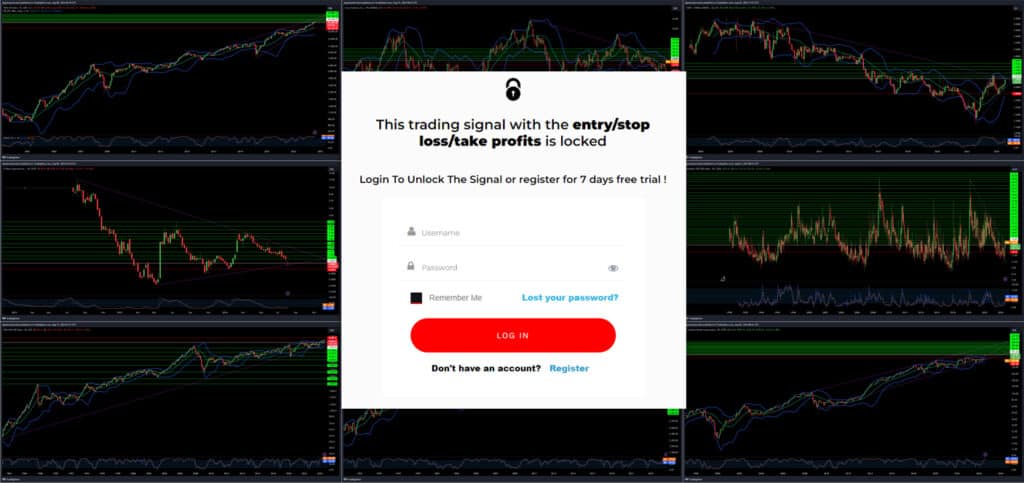Greetings, readers! Today, I am excited to delve into a significant event in financial history that took place in the 18th century – the South Sea Bubble. By exploring this historical perspective, we can gain insight into the market mania that swept over investors during that time.
Creating a comprehensive understanding of the South Sea Bubble is crucial to appreciate the frenzy that gripped the stock market and led to both fortunes made and lost. This historical event serves as a reminder of the risks and consequences associated with speculative behavior and market volatility.
To aid our exploration, let’s start by tracing the origins of the South Sea Bubble and understanding the context that fueled this phenomenon.
Key Takeaways:
- The South Sea Bubble was a significant event in financial history that occurred in the 18th century.
- Studying historical market manias like the South Sea Bubble can provide valuable insights into investor behavior and the risks associated with speculative behavior.
- Understanding the origins and rise of the South Sea Bubble is crucial to grasp the magnitude of the subsequent financial crash.
- The South Sea Bubble had severe economic and social impacts, including bankruptcies and public outrage.
- Lessons learned from the South Sea Bubble include the importance of thorough research, analysis, and effective risk management strategies.
The Origins of the South Sea Bubble
The South Sea Bubble, one of the most infamous financial events in history, can be traced back to the South Sea Company, a British trading company that held a monopoly on trade with Spanish colonies in South America.
As the stock price of the South Sea Company began to rise, investors saw an enticing opportunity for substantial profits and eagerly poured their funds into the company.
However, there was another critical factor that contributed to the frenzy surrounding the South Sea Bubble – the enormous government debt faced by the British government at the time.
The government saw the South Sea Company as a way to alleviate its debt burden by encouraging people to invest in the company.
This combination of factors, the allure of high profits and the government’s endorsement, led to a surge of interest in the South Sea Company’s stock, ultimately fueling the market mania that would ensue.
The South Sea Bubble is a prime example of how market dynamics, government policies, and investor psychology can converge to create extraordinary financial events. Understanding its origins provides us with invaluable insights into the impact of speculative behavior, the stock market, and the relationship between government debt and financial markets.
The Rise and Fall of the Bubble
The South Sea Bubble of the 18th century captured the attention of investors as the stock price of the South Sea Company surged to great heights. Speculators looking for quick profits fueled the bubble, causing the stock price to skyrocket.
Many investors were lured by the promise of wealth and driven by speculation rather than considering the company’s actual performance. The allure of making fast money led to a frenzy of buying, driving the stock price higher and higher.
However, the bubble eventually burst with catastrophic consequences. The financial crash that followed the burst of the South Sea Bubble caused the stock price to plummet, resulting in significant losses for many investors.
The South Sea Bubble serves as a stark reminder of the risks associated with speculative behavior in financial markets. It exemplifies the dangers of being caught up in the excitement of a market frenzy without considering the underlying fundamentals.
“It is the irresistible desire to ‘get rich quick’ that often leads investors astray.”
Investors who had succumbed to speculation alone suffered the consequences of their actions, highlighting the importance of informed decision-making based on thorough research and analysis.
The Impact of the Financial Crash
The bursting of the South Sea Bubble had far-reaching implications. The collapse of the stock price resulted in bankruptcies for many individuals and businesses who had been caught up in the speculative mania. This widespread financial distress sent shockwaves through the economy and caused public outrage.
The financial crash caused immense damage to investor confidence and raised concerns about the need for increased regulation and oversight in financial markets. It served as a wake-up call, reminding investors of the risks inherent in allowing market mania and speculation to drive investment decisions.
The Aftermath and Lessons Learned
The South Sea Bubble offers valuable lessons for investors and financial professionals today. It underscores the importance of risk management strategies, sound investment principles, and a focus on long-term value rather than short-term gains.
- The dangers of succumbing to speculation without considering fundamentals.
- The significance of conducting thorough research and analysis.
- The need for effective risk management strategies to protect against financial downturns.
By studying the rise and fall of the South Sea Bubble, we gain insights into market dynamics, investor behavior, and the potential consequences of speculative market behavior. This historical event continues to serve as a cautionary tale and a reminder of the importance of prudence and diligence in navigating the complex world of finance and investments.
Economic and Social Impact
The bursting of the South Sea Bubble in the 18th century had far-reaching economic and social consequences. The frenzy that led up to the bubble’s collapse resulted in a financial crisis that affected individuals, businesses, and the overall stability of the market.
As the bubble burst, many investors experienced significant losses, and bankruptcies became rampant. Financial distress spread throughout the country as individuals and businesses faced insurmountable debts and financial ruin. The impact was not limited to those directly involved in the stock market; the ripple effect was felt across various sectors of the economy.
Furthermore, public outrage was ignited by the actions of the South Sea Company and the government’s role in the crisis. The public felt deceived and betrayed by the company’s false promises and the government’s failure to regulate and intervene effectively. The sense of public outrage led to a loss of trust in financial institutions and a desire for increased transparency and accountability.
This event served as a stark reminder of the dangers of speculative market behavior. It highlighted the risks associated with unchecked speculation and excessive market optimism. The South Sea Bubble became a cautionary tale, illustrating the devastating consequences that can arise from unchecked greed and manipulation in financial markets.
Public outrage and the economic fallout from the South Sea Bubble resulted in significant changes in financial regulation and oversight. Governments and regulatory bodies recognized the need for increased vigilance to prevent similar crises in the future. Stricter regulations and safeguards were put in place to protect investors and promote market stability.
“The bursting of the South Sea Bubble was a wake-up call for governments and regulators around the world. It highlighted the need for effective oversight and risk management in financial markets to prevent such catastrophic events from occurring again.”
Impact of the South Sea Bubble
| Economic Impact | Social Impact |
|---|---|
| – Financial crisis | – Public outrage |
| – Bankruptcies | – Loss of trust in financial institutions |
| – Widespread financial distress | – Desire for increased transparency and accountability |
| – Market instability | – Changes in financial regulation |
The financial crisis caused by the South Sea Bubble had a lasting impact on the economy and society. The bankruptcies, public outrage, and loss of trust in financial institutions led to significant changes in financial regulation and increased scrutiny of market activities. This historical event serves as a reminder of the dangers of speculative behavior and the need for effective oversight to prevent similar crises in the future.
Lessons Learned from the South Sea Bubble
The South Sea Bubble serves as a historical lesson about the dangers of investor psychology and the formation of market bubbles. It demonstrates the importance of conducting thorough research and analysis before making investment decisions, and the need for effective risk management strategies to protect against financial downturns.
During the South Sea Bubble, investors were driven by greed and speculation rather than rational decision-making. This led to a rapid rise in stock prices fueled by unrealistic expectations and a herd mentality. As a result, many individuals were lured into investing without fully understanding the underlying risks.
The South Sea Bubble serves as a reminder that market behavior is often driven by emotions and sentiment, rather than fundamentals. Investors should be cautious of following the crowd and succumbing to the fear of missing out. Instead, they should focus on objective analysis and a disciplined approach to investing.
Furthermore, risk management is a crucial aspect of successful investing. The South Sea Bubble demonstrated the importance of diversification and having a well-balanced portfolio. By spreading investments across different asset classes, industries, and geographic regions, investors can mitigate the impact of a potential market bubble.
Lessons Learned from the South Sea Bubble:
- Investor psychology plays a significant role in market bubbles.
- Thorough research and analysis are essential before making investment decisions.
- Effective risk management strategies are necessary to protect against financial downturns.
- Diversification is key to minimizing the impact of market bubbles.
| Lesson | Explanation |
|---|---|
| Investor Psychology | Investor behavior influenced market bubbles during the South Sea Bubble. |
| Research and Analysis | The importance of conducting thorough research before making investment decisions. |
| Risk Management | The need for effective risk management strategies to mitigate financial downturns. |
| Diversification | Spreading investments across different assets to minimize the impact of market bubbles. |
Historical Relevance Today
Although the South Sea Bubble occurred centuries ago, its lessons are still highly applicable in today’s financial markets. This event serves as a stark reminder of the potential consequences of speculative behavior and the inherent risks associated with market volatility. The lessons learned from the South Sea Bubble continue to shape the way economists, historians, and analysts understand market dynamics and investor behavior.
The South Sea Bubble provides valuable insights into the dangers of unchecked speculation and the fragility of financial markets. It highlights the importance of maintaining a cautious approach and conducting thorough research before making investment decisions. The event serves as a historical case study, teaching us the significance of risk management strategies in mitigating the impact of market downturns.
The South Sea Bubble also demonstrates the long-lasting effects of market volatility. The sudden rise and subsequent crash of the bubble had far-reaching economic and social consequences. It led to widespread bankruptcies, financial distress, and public outrage. This historical event serves as a cautionary tale, urging us to remain vigilant and proactive in monitoring market conditions and in regulating speculative behavior.
“The South Sea Bubble serves as a solemn reminder of the detrimental impact that speculative fervor can have on financial stability. It is an enduring lesson that we must constantly bear in mind, especially in times of market uncertainty.” – Financial Analyst
The Importance of Learning from History
By studying the South Sea Bubble and similar historical market events, we gain a deeper understanding of the behavioral and psychological factors that drive speculative behavior. It enables us to recognize patterns and potential triggers for market bubbles, empowering us to make informed decisions and implement effective risk management strategies.
Furthermore, understanding the historical context and consequences of market mania helps instill a sense of caution and responsibility among market participants. It encourages regulators to establish and enforce robust oversight measures to safeguard financial markets, ensuring their stability and resilience.
The Significance of Market Volatility
Market volatility is an inherent characteristic of financial markets. The South Sea Bubble serves as a powerful reminder of the impact that unpredictable market fluctuations can have on investors’ wealth and financial well-being. It underscores the need for individuals and institutions to adopt a long-term perspective, diversify their portfolios, and have mechanisms in place to manage and mitigate risks associated with market turbulence.
Conclusion
The South Sea Bubble holds a significant place in financial history, serving as a stark reminder of the dangers of market mania and speculative behavior. By analyzing this historical event, we can gain valuable insights into the factors that contribute to the formation of market bubbles and make more informed decisions in today’s financial landscape.
The South Sea Bubble originated with the South Sea Company, a British trading company that obtained a monopoly on trade with Spanish colonies. As the company’s stock price soared, driven by investor speculation and the British government’s efforts to reduce debt, a state of market frenzy ensued.
However, the bubble eventually burst in 1720, leading to a financial crash that resulted in significant losses for investors. This event highlighted the economic and social impact of speculative market behavior, with bankruptcies and public outrage becoming widespread.
Lessons from the South Sea Bubble remain relevant today, as it serves as a reminder of the importance of conducting thorough research and practicing effective risk management. By understanding the dynamics of market mania and the risks associated with speculative behavior, we can navigate the ever-changing financial landscape with greater caution and prudence.
FAQ
What was the South Sea Bubble?
The South Sea Bubble was a significant event in financial history that occurred in the 18th century. It was a market mania driven by speculation and investment frenzy.
What was the South Sea Company?
The South Sea Company was a British trading company that was granted a monopoly on trade with Spanish colonies in South America. Its rising stock price attracted investors looking for high profits.
How did the South Sea Bubble impact investors?
Many investors were driven by speculation rather than the company’s performance. When the bubble burst, the stock price plummeted, causing significant losses for investors.
What were the economic and social consequences of the South Sea Bubble?
The bursting of the bubble led to bankruptcies and widespread financial distress. It also sparked public outrage towards the South Sea Company and increased regulation in financial markets.
What lessons can be learned from the South Sea Bubble?
The South Sea Bubble highlights the dangers of speculative behavior and the formation of market bubbles. It emphasizes the importance of thorough research, analysis, and risk management in investment decisions.
How is the South Sea Bubble relevant today?
The event serves as a reminder of the potential consequences of speculative behavior and the risks of market volatility. It is still studied to better understand investor behavior and the dynamics of market bubbles.
Source Links
- https://www.rimonthly.com/diners-update-7/
- https://www.bnnbloomberg.ca/xi-s-empty-dream-city-shows-limits-of-his-power-even-in-china-1.2019866
Disclaimer
All information on this website is of a general nature. The information is not adapted to conditions that are specific to your person or entity. The information provided can not be considered as personal, professional or legal advice or investment advice to the user.
This website and all information is intended for educational purposes only and does not give financial advice. Signal Mastermind Signals is not a service to provide legal and financial advice; any information provided here is only the personal opinion of the author (not advice or financial advice in any sense, and in the sense of any act, ordinance or law of any country) and must not be used for financial activities. Signal Mastermind Signals does not offer, operate or provide financial, brokerage, commercial or investment services and is not a financial advisor. Rather, Signal Mastermind Signals is an educational site and a platform for exchanging Forex information. Whenever information is disclosed, whether express or implied, about profit or revenue, it is not a guarantee. No method or trading system ensures that it will generate a profit, so always remember that trade can lead to a loss. Trading responsibility, whether resulting in profits or losses, is yours and you must agree not to hold Signal Mastermind Signals or other information providers that are responsible in any way whatsoever. The use of the system means that the user accepts Disclaimer and Terms of Use.
Signal Mastermind Signals is not represented as a registered investment consultant or brokerage dealer nor offers to buy or sell any of the financial instruments mentioned in the service offered.
While Signal Mastermind Signals believes that the content provided is accurate, there are no explicit or implied warranties of accuracy. The information provided is believed to be reliable; Signal Mastermind Signals does not guarantee the accuracy or completeness of the information provided. Third parties refer to Signal Mastermind Signals to provide technology and information if a third party fails, and then there is a risk that the information may be delayed or not delivered at all.
All information and comments contained on this website, including but not limited to, opinions, analyzes, news, prices, research, and general, do not constitute investment advice or an invitation to buy or sell any type of instrument. Signal Mastermind Signals assumes no responsibility for any loss or damage that may result, directly or indirectly, from the use or dependence on such information.
All information contained on this web site is a personal opinion or belief of the author. None of these data is a recommendation or financial advice in any sense, also within the meaning of any commercial act or law. Writers, publishers and affiliates of Signal Mastermind Signals are not responsible for your trading in any way.
The information and opinions contained in the site are provided for information only and for educational reasons, should never be considered as direct or indirect advice to open a trading account and / or invest money in Forex trading with any Forex company . Signal Mastermind Signals assumes no responsibility for any decisions taken by the user to create a merchant account with any of the brokers listed on this website. Anyone who decides to set up a trading account or use the services, free of charge or paid, to any of the Broker companies mentioned on this website, bears full responsibility for their actions.
Any institution that offers a service and is listed on this website, including forex brokers, financial companies and other institutions, is present only for informational purposes. All ratings, ratings, banners, reviews, or other information found for any of the above-mentioned institutions are provided in a strictly objective manner and according to the best possible reflection of the materials on the official website of the company.
Forex/CFD trading is potentially high risk and may not be suitable for all investors. The high level of leverage can work both for and against traders. Before each Forex/CFD investment, you should carefully consider your goals, past experience and risk level. The opinions and data contained on this site should not be considered as suggestions or advice for the sale or purchase of currency or other instruments. Past results do not show or guarantee future results.
Neither Signal Mastermind Signals nor its affiliates ensure the accuracy of the content provided on this Site. You explicitly agree that viewing, visiting or using this website is at your own risk.




